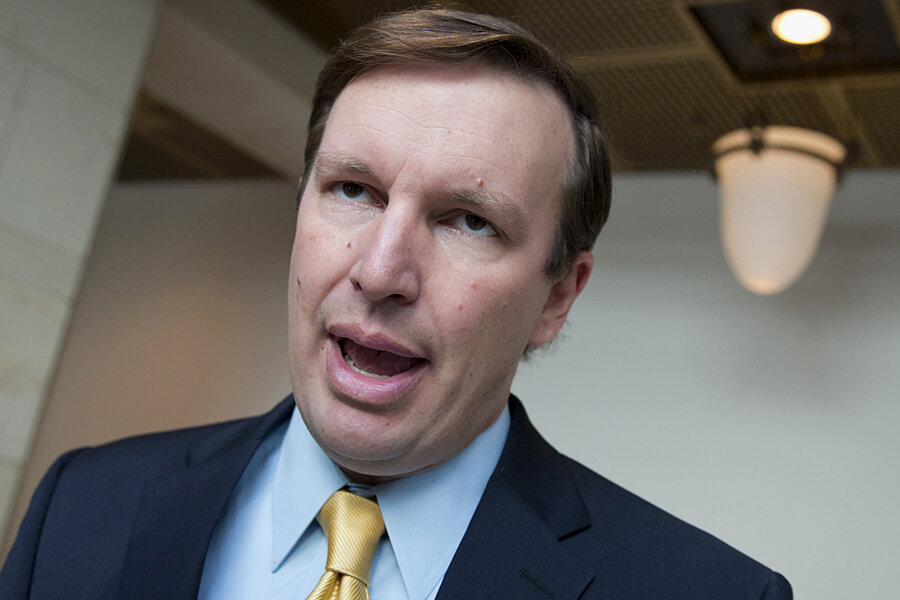Raising gas tax to pay transportation projects? Good idea, but skip the budget gimmick
Loading...
Senators Bob Corker (R-TN) and Chris Murphy (D-CT) deserve enormous credit for having the courage to do what few of their colleagues would: Propose to pay for transportation projects by raising the gas tax. It’s too bad they’d ruin such a sensible, straight-forward idea with a ridiculous budget gimmick.
Their bill would hike the gas tax by 6 cents in each of the next two years and then index the levy for inflation. The current federal gasoline tax has been 18.4 cents since 1983 (diesel is an additional 6 cents). They estimate their tax hike would raise about $164 billion over the next decade—enough to support the Highway Trust Fund at currently projected spending levels for 10 years.
The trust fund is currently spending far more than it takes in. To keep it going Congress already has shifted $50 billion from the general fund. Over the next decade, it would have to transfer $160 billion in general revenues.
Corker’s and Murphy’s gas tax hike is a perfectly reasonable solution. While not the most creative, it would solve the problem, at least for the next decade.
And Corker especially deserves credit. In the current environment, it isn’t easy for a Republican to propose a tax hike of any kind. Already, groups such as the Club for Growth and Heritage Action are hammering Corker for his “$164 billion tax increase.”
The problem is with the second half of the bill. Largely to insulate themselves from that tax increase charge, Corker and Murphy would offset this new revenue by permanently restoring $190 billion in targeted tax breaks that expired last December. The lawmakers don’t identify which of the expired provisions they’d resurrect.
This is possible thanks to Congress’ arcane budget rules. But let’s get past all the technical scoring issues and cut to the chase: Corker and Murphy would replenish the highway fund with $164 billion in new tax revenues. At the same time, they’d reduce general fund revenues by about $190 billion by restoring the expired tax breaks.
Thus, instead of moving cash from the general fund to the highway fund, they’d reduce the amount of money the general fund collects in the first place. The effect on federal borrowing is exactly the same.
To put it another way, it would be perfectly fine (in budget terms) if Congress used a gas tax hike to pay for restoring those expired tax cuts. It would be excellent if it used a gas tax hike to pay for roads and mass transit. But it can’t use the same money to do both. Even in Washington, a dollar can only be spent once.
This gimmick is just the latest in an unfortunate string of wacky ideas aimed at filling the trust fund’s growing fiscal pothole without actually raising any new money or reducing spending.
Senate Democratic Leader Harry Reid (D-NV) and conservative Senate Republican Rand Paul (R-KY) have suggested temporarily financing the highway fund with a tax holiday on companies that bring foreign earnings back to the U.S.
Trouble is, the congressional Joint Committee on Taxation estimates that while a temporary cut in the repatriation tax would generate $20 billion over the next couple of years, it would lose $95 billion over a decade.
House Republicans are reportedly drafting a measure to generate highway money by curtailing Saturday mail delivery by the Postal Service.
Great idea, except for two problems:
First, it would generate about $11 billion over 10 years, while the trust fund needs more than that to keep going for just one year. Second, the Post Office, like the highway fund, is supposed to be self-sufficient. And like the transportation fund, it is spending far more than it takes in and thus is being subsidized by the general fund. Shifting savings from the Post Office to the Transportation Dept. only means more general revenues will have to be pumped into the mail system.
Unwilling to raise taxes to fund the government most Americans seem to want, Congress has slipped into some alternative universe where it thinks it can pay actual bills with nothing more than financial legerdemain. Like a corporate CFO whose firm is leaking red ink, lawmakers are desperately trying to keep the enterprise afloat by simply moving money from account to account.
One day, perhaps they’ll figure out that the only way to make the books balance is to either cut expenses, raise revenue, or both. Until then, budget gimmicks will substitute for real governance.







